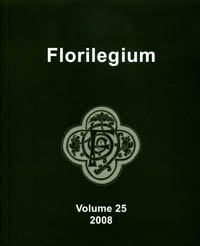Scottish Poets and English Stanzas: Schir Thomas Norny and Dunbar’s Use of Tail-Rhyme
Résumé
Dunbar’s satiric poem Schir Thomas Norny bears an obvious relation to Chaucer’s parody of English tail-rhyme romance, The Tale of Sir Thopas, and has often been taken for a mere imitation of it. This assessment of Dunbar’s poem within the context of his own works and that of contemporary Older Scots poetry reveals that Norny’s relationship with Thopas is far more complex, however. Dunbar’s own independent knowledge of tail-rhyme romance shows Chaucer’s influence to be less pervasive here than previously thought, although differences between Norny and Dunbar’s other two satirical tail-rhyme works indicate that it must have provided the initial inspiration. Furthermore, the status of tail-rhyme as a popular English, rather than Scottish, verse form lends an edge to Dunbar’s use of it for social satire that certainly cannot have been inspired by Chaucer: it indicates, rather, the point at which he moves beyond his acknowledged poetic mentor.Téléchargements
Publié-e
2008-01-01
Comment citer
Purdie, R. (2008). Scottish Poets and English Stanzas: Schir Thomas Norny and Dunbar’s Use of Tail-Rhyme. Florilegium, 25, 175–191. Consulté à l’adresse https://journals.lib.unb.ca/index.php/flor/article/view/14399
Numéro
Rubrique
In Focus: Scottish Studies



